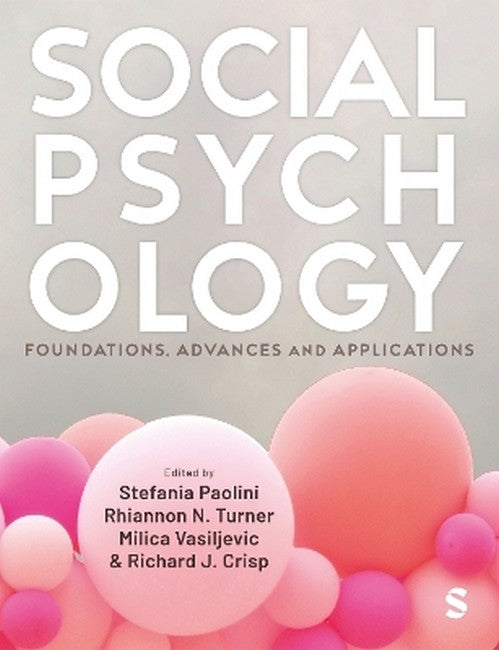Rhiannon Turner is Professor of Social Psychology at Queen's University Belfast. She did her undergraduate degree at Cardiff University, her Master's degree at the University of Kent, her doctoral research at the University of Oxford, and her postdoctoral research at the University of Birmingham. In 2007, she took up a lectureship at the University of Leeds, and she was appointed Chair at Queen's University Belfast in 2012. The main focus of her research is intergroup relations, with a particular interest in direct and indirect forms of contact (such as extended, online, and imagined contact, and nostalgic recall of contact) as a means of changing intergroup attitudes and behaviour. She has published over 100 articles, chapters and books, including papers in American Psychologist, Journal of Personality and Social Psychology, and Psychological Bulletin, and her research has been funded by grants from the British Academy, Economic and Social Research Council, Engineering and Physical Sciences Research Council, Global Challenges Research Fund, Leverhulme Trust and the National Institute for Health Research. She has won the British Psychological Science award for Outstanding Doctoral Research Contributions to Psychology, the Foundation for Personality and Social Psychology's Robert B. Cialdini Award for contributions to field research in social psychology and, together with Richard Crisp, the Gordon Allport Intergroup Relations Prize from the Society for the Psychological Study of Social Issues. She has held various editorial roles including Editor-in-Chief of the European Review of Social Psychology. She is currently on the editorial board of Journal of Personality and Social Psychology, British Journal of Social Psychology, and Group Processes and Intergroup Relations. She is also a Fellow of the Society of Experimental Social Psychology. She featured in the BAFTA winning 2020 Channel 4 programme, The School That Tried To End Racism, and has given evidence on the value of diversifying the school curriculum to UK Parliament. Richard Crisp is Professor of Social Psychology at Durham University. He read Experimental Psychology at the University of Oxford and carried out his doctoral research at Cardiff University. In addition to Durham University Richard has held positions at the Universities of Birmingham, Kent and Sheffield as well as the Aston Business School. Richard's research has covered the full range of topics that comprise social psychology, from the formation and reduction of prejudice, to the self and identity processes involved in interpersonal relations, from mere exposure and attitude formation, to stereotyping and social categorization. He has published this work in over 150 articles, chapters and books, including papers in American Psychologist, Psychological Science, Psychological Bulletin and Science. This work has been recognized with awards from scholarly societies, including the British Psychological Society President's Award for Distinguished Contributions to Psychological Knowledge and Spearman Medal. Together with Rhiannon Turner he received the 2011 Gordon Allport Intergroup Relations Prize from the Society for the Psychological Study of Social Issues (for the best paper of the year on intergroup relations). He is Editor-in-Chief of the Journal of Applied Social Psychology and was founding editor of the Journal of Theoretical Social Psychology. He is a Fellow of the Academy of Social Sciences, a Fellow of the Association for Psychological Science and a Fellow of the British Psychological Society.
Request Academic Copy
Please copy the ISBN for submitting review copy form
Description
Chapter 1: History and Research Methods - Paddy Ross, Milica Vasiljevic and Stefania Paolini Chapter 2: Self and Identity - Kimberly Rios and Alysson E. Light Chapter 3: Affiliation, Friendship, and Love - Jennifer Paterson Chapter 4: Social Emotions - Smadar Cohen-Chen Chapter 5: Social Cognition - Mario Weick Chapter 6: Attitudes and Persuasion - Christopher R. Jones and Lambros Lazuras Chapter 7: Social Influence - Julie Van De Vyver and Fanny Lalot Chapter 8: Group Processes - David Rast and Amber Gaffney Chapter 9: Prejudice - Shelley McKeown, Amanda Williams and Shazza Ali Chapter 10: Intergroup and Intercultural Relations - Michele Birtel Chapter 11: Behaviour Change - Milica Vasiljevic

